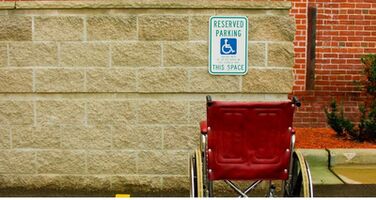
Understanding the Eligibility Criteria for a Handicap Placard in Indiana
Introduction
In the state of Indiana, individuals with disabilities have the opportunity to obtain a disability placard, which provides them with certain privileges and benefits to make their daily lives more manageable. However, it is essential to understand the eligibility criteria for obtaining a handicap placard in Indiana to ensure that the process is smooth and efficient. This article aims to provide comprehensive information about the eligibility criteria, application process, and frequently asked questions regarding placards in Indiana.
Eligibility Criteria for a Handicap Placard in Indiana
To qualify for a handicap permit in IN, individuals must meet specific eligibility criteria set by the Indiana Bureau of Motor Vehicles (BMV). These criteria include:
1. Physical Disability
To be eligible for a permit, an individual must have a physical disability that impairs their mobility. This can include conditions such as:
- Loss of use or permanent impairment of one or both legs.
- The need to use assistive devices, such as crutches, canes, walkers, or wheelchairs, for mobility.
- Lung disease or severe cardiac condition that significantly limits their ability to walk.
2. Visual Impairment
Individuals with visual impairments may also be eligible for a permit. The criteria for visual impairment include:
- Central visual acuity of 20/200 or less in the better eye, with corrective lenses.
- Visual field restriction of 20 degrees or less.
3. Temporary Disability
In cases where an individual has a temporary disability that affects their mobility, they may be eligible for a temporary permit. The temporary disability must be expected to last for at least three months.
4. Certification from a Healthcare Professional
To obtain a handicap placard, individuals must provide certification from a healthcare professional confirming their disability. This certification can be provided by a licensed physician, chiropractor, podiatrist, advanced practice registered nurse, or physician assistant.
Application Process for a Handicap Placard in Indiana
To apply for a permit in IN, follow these steps:
1. Obtain the Application Form
Visit the Indiana BMV website or your local BMV office to obtain the Application for Disability Parking Placard or Disability Plate (Form 42070). The form is also available at certain healthcare provider offices.
2. Complete the Application
Fill out the application form with accurate and up-to-date information. Ensure that you provide all the required details, including your personal information, disability description, and certification from a healthcare professional.
3. Submit the Application
Once you have completed the application form, submit it to your local BMV office or mail it to the address specified on the form. Include any required fees, if applicable.
4. Receive the Handicap Placard
If your application is approved, you will receive a permit that should be visibly displayed when using designated accessible parking spaces.
Frequently Asked Questions (FAQs)
Q1: How long is a disability pass valid in Indiana?
A1: The validity of an Indiana handicap placard depends on the type of disability. Permanent placards are valid for up to five years, while temporary placards are valid for three months or as indicated by the healthcare professional.
Q2: Can I use my Indiana disability pass in other states?
A2: Yes, IN disability passes are recognized in other states. However, it is important to familiarize yourself with the specific parking regulations and requirements of the state you are visiting.
Q3: Can I transfer my disability pass to another vehicle?
A3: Yes, passes are transferable between vehicles as long as they are used by or for the benefit of the authorized holder.
Q4: What should I do if my disability pass is lost or stolen?
A4: If your pass is lost or stolen, you should report it to the local law enforcement agency. Additionally, you can apply for a replacement by following the same application process.
Q5: Can I lend my disability pass to someone else?
A5: No, these are non-transferable and should only be used by or for the benefit of the individual to whom it was issued.
Q6: Are there any fines or penalties for misusing a disability pass?
A6: Yes, misusing a pass is a serious offense. Individuals caught misusing one may face fines, suspension of placard privileges, or other legal consequences.
Conclusion
Understanding the eligibility criteria for a handicap placard in Indiana is crucial for individuals with disabilities. By meeting the specific criteria set by the IN BMV and following the application process, individuals can obtain a handicap pass that provides them with essential benefits and privileges. It is important to remember that passes are intended to assist those with genuine disabilities, and misusing them is not only illegal but also unfair to those who truly rely on them for accessibility.
.png)






